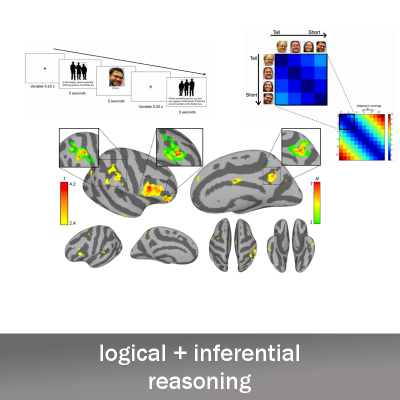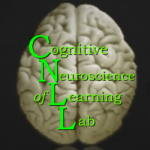logical reasoning
logical + inferential reasoning

How do we use reasoning to understand and process new information?
Logical reasoning is a central cognitive process for success in any STEM domain. From learning about mathematical operations and computational algorithms to generating new scientific insights through analogical reasoning, our capacity for understanding complex relationships between disparate pieces of information seems limitless.
In our ongoing research, we seek to understand how the brain supports these complex reasoning processes. As our model of how reasoning is implemented on a neural level becomes more precise, we gain a better understanding of how we construct mental models that we use to understand cause and effect in the world. Specifically, neural systems that support visuospatial cognition are revealed to be central to the processing of complex logical relationships.
Understanding how the inferential reasoning process operates successfully will help to inform our knowledge of why and when this process breaks down, such as when we fail to incorporate new information and instead rely on misconceptions drawn from prior faulty beliefs.


